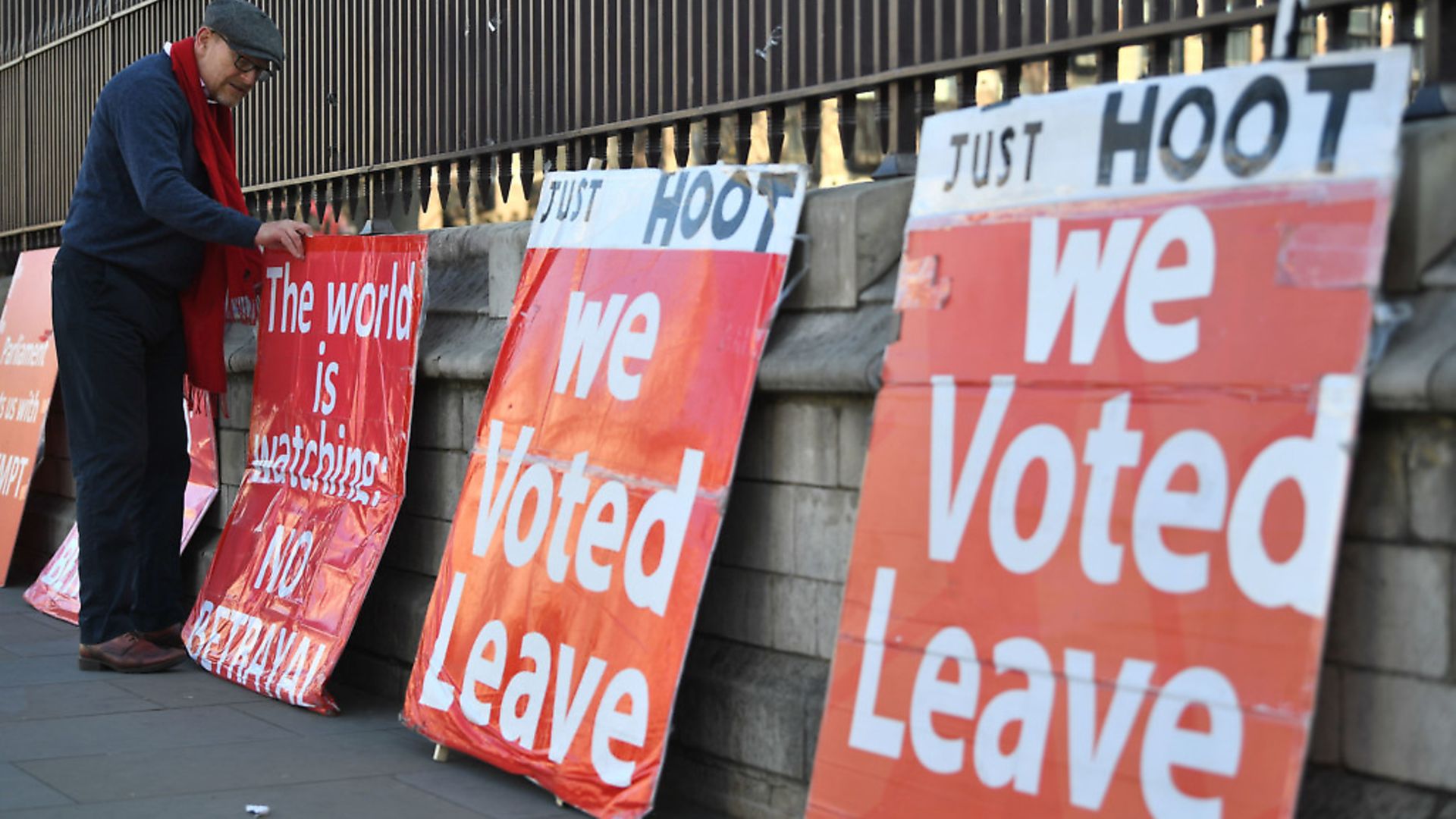
Theresa May is battling to get her Brexit Withdraal Agreement backed by the Commons on the day she intended for the UK to leave the EU.
May has split the legally binding treaty segment of her Brexit deal from the declaration on future relations with the EU in order to ensure MPs could vote.
But she faces an uphill struggle as key government allies the DUP joined Labour leader Jeremy Corbyn in saying they would vote against the move.
The PM’s decision to present just the Withdrawal Agreement to the Commons means it is not a third attempt to pass a ‘meaningful vote’ on the government’s Brexit deal and complies with rules laid down by Commons speaker John Bercow.
Under the terms of an agreement with Brussels, if passed by MPs the vote would qualify the UK to be granted an automatic delay to May 22 of the formal date of Brexit.
May’s move allows the government to present the situation as a choice between a short delay to Brexit and the potential for a much longer one which would mean taking part in European Parliament elections.
But it would not let parliament go ahead and ratify the withdrawal deal, as Brexit legislation allows this only after the passage of a ‘meaningful vote’ on both the Withdrawal Agreement and a Political Declaration on the future relationship.
DUP Westminster leader Nigel Dodds said his party could not back the Withdrawal Agreement because the government had failed to win legally binding changes regarding the controversial ‘backstop’ customs arrangements for the Irish border.
Corbyn told the PM in a 20-minute telephone discussion that he would not support the move as it represented a ‘blindfold Brexit’.
However, Downing Street is hoping that the move to split off the agreement will win support from Labour backbenchers.
One potential way for the PM to woo Labour MPs might be to accept an amendment tabled by Stoke-on-Trent Central’s Gareth Snell and signed by Lisa Nandy, Frank Field, Ivan Lewis, Caroline Flint, Rosie Cooper, Ruth Smeeth and Melanie Onn, which would give parliament the power to set the negotiating mandate for talks on the future relationship.
Other amendments, tabled by SNP MPs, call on May to halt Brexit altogether by revoking the UK’s Article 50 letter or to make EU withdrawal dependent on the approval of the Scottish Parliament and Welsh Assembly.
If the motion on the Withdrawal Agreement is rejected by MPs, the UK will have until April 12 to ask for a further extension to Brexit negotiations – which would require voters to choose new MEPs – or leave the EU without a deal.
Warning: Illegal string offset 'link_id' in /mnt/storage/stage/www/wp-includes/bookmark.php on line 357
Notice: Trying to get property 'link_id' of non-object in /mnt/storage/stage/www/wp-includes/bookmark.php on line 37






